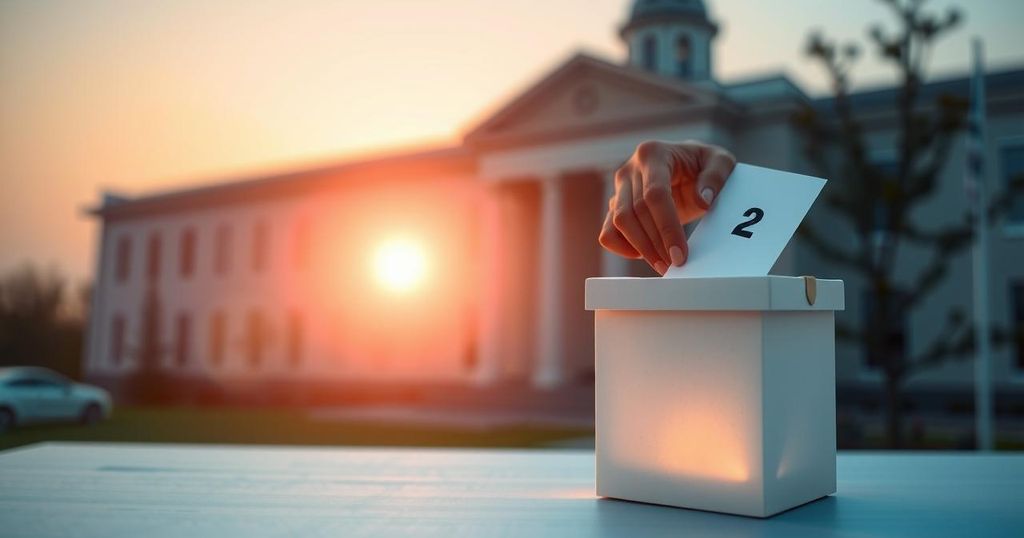Ecuador Votes Amid Violence and Economic Crisis

Ecuador’s president election is underway, with 14 million voters choosing among 16 candidates, including incumbent Daniel Noboa and Luisa Gonzalez. The campaigns are shaped by concerns over crime and economic instability. Noboa emphasizes a hardline approach to crime, while Gonzalez seeks to maintain IMF ties for economic recovery. The election underscores the urgency for national transformation as Ecuador grapples with a severe crisis.
Ecuador is facing a pivotal moment as approximately 14 million citizens have begun voting to decide their next president amid escalating violence and political turmoil. Sixteen candidates are in the running, with incumbent Daniel Noboa and leftist challenger Luisa Gonzalez prominently featured. The elections are heavily influenced by public concerns regarding a deteriorating economy and violent cartel conflicts that have drastically altered the nation’s safety profile.
The electoral campaigns have seen increased security measures, with both candidates escorted by special forces due to safety concerns following the assassination of a candidate in 2023. Gonzalez expressed fears for her life based on intelligence reports but emphasized the need for national transformation. Noboa’s profile as a youthful leader is marked by his aggressive stance on crime prevention, aiming to stabilize Ecuador amidst growing threats from powerful drug cartels.
As the drug crisis intensifies, particularly with increased cocaine trafficking, Noboa has declared a state of emergency and mobilized military forces to restore order. This includes closing borders with Colombia and Peru during the election to prevent possible disturbances. Human rights advocates have criticized his methods, citing incidents of violence by the military.
Ecuador is experiencing severe economic distress, exacerbated by the security crisis and a recession that has muddled the tourism and investment sectors. In response to the financial challenges, Noboa is relying on support from the International Monetary Fund to address fiscal deficits. Gonzalez has signaled her intention to honor existing agreements with the IMF while ensuring protection for vulnerable populations.
With mandatory voting in place, polls are set to close at 5 PM local time, and a runoff election is expected if no candidate secures a majority. The elections occur against a backdrop of increasing social challenges, including the expected return of Ecuadorans from abroad due to U.S. immigration policies. This situation complicates the already precarious job market and heightens concerns about unemployment and insecurity.
Ecuador is currently grappling with unprecedented levels of violence attributed to organized crime, particularly drug trafficking. This has resulted in a drastic change from being regarded as a relatively safe country to being one of the most dangerous regions in the Americas. The ongoing violence and crime are closely linked to economic instability, with high rates of murder and kidnapping impacting both the population and economic recovery efforts. The election of a new president is crucial for establishing a stable government capable of addressing these significant challenges, with citizens and political analysts recognizing the severity of the situation as the worst crisis since the restoration of democracy in Ecuador.
The upcoming presidential election in Ecuador represents a critical juncture for a nation besieged by violence and economic turmoil. With a wide range of candidates vying for presidency amid security concerns and economic desperation, the outcome of this election could reshape the country’s approach to crime, economic recovery, and social stability. The international community is also observing how the newly elected leader will navigate complex relationships with drug cartels and global financial institutions. Overall, voter sentiment reflects a deep desire for change and a need for comprehensive strategies to address the pressing issues at hand.
Original Source: www.news.com.au







